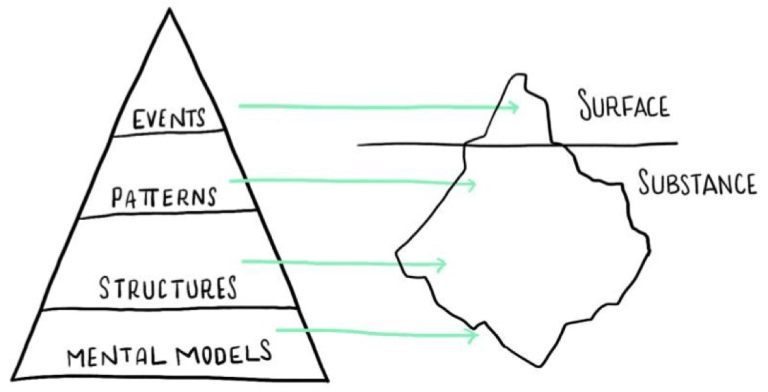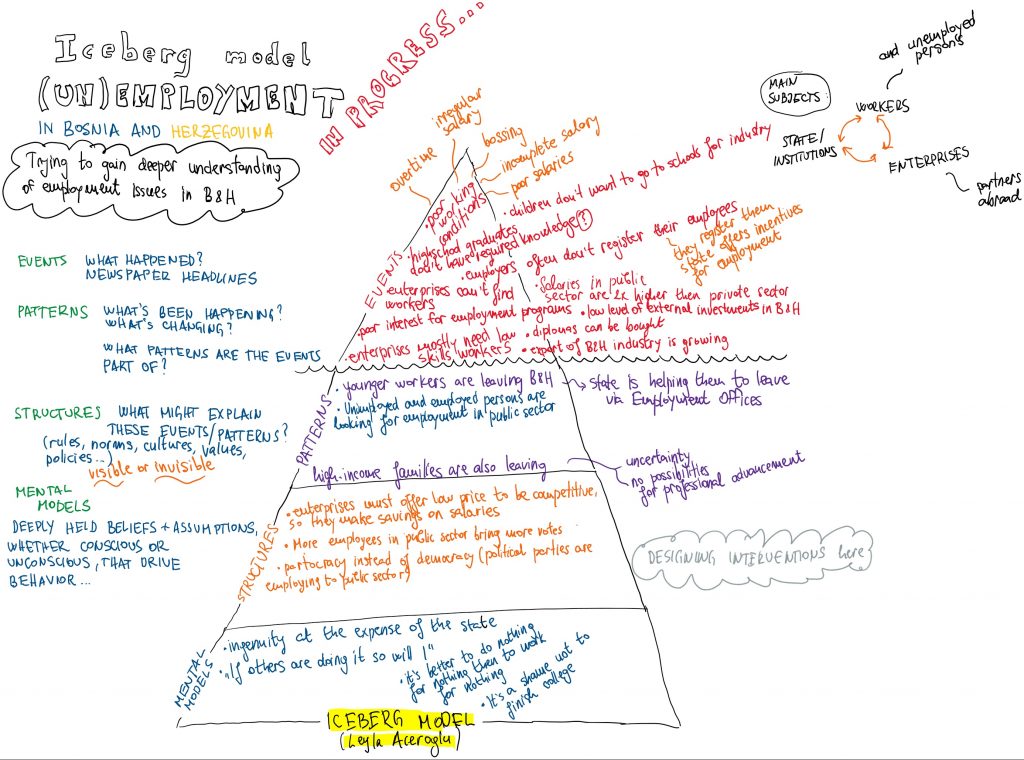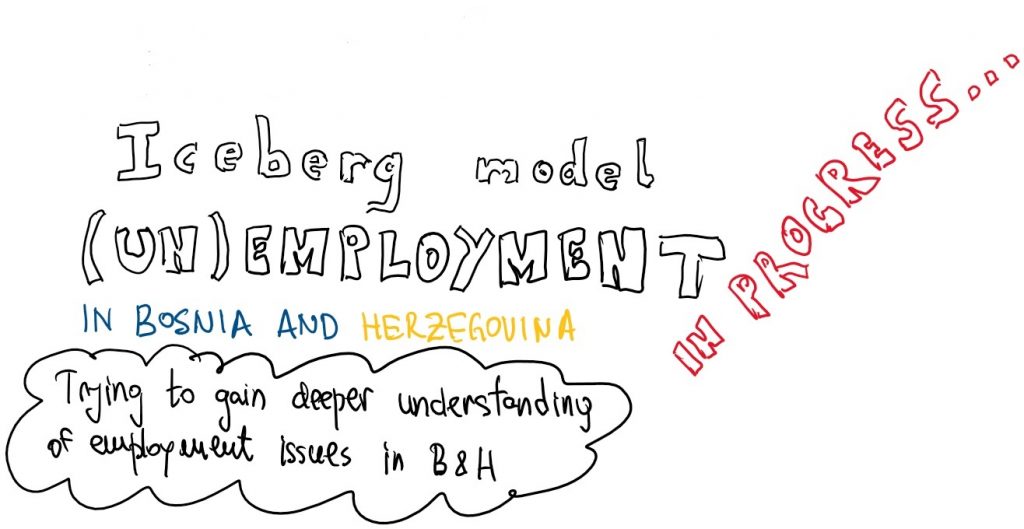I have firstly encountered Iceberg Model somewhere on the Internet during 2017, in one of Leyla Acaroglu’s articles/blogs. It immediately made sense to me and I copied it to my notepad. In short, it’s a tool used to gain a deeper understanding of things. It illustrates that things we see or read about in newspapers (events) are only a tip of iceberg. There’s much more of iceberg under the water, just as there are things that influence things we see or read about, but are not easily visible.

A few days ago I tried to find Leyla’s post, but failed. Instead, I found Systems Thinking With The Iceberg: A Tool for Multi-stakeholder System Sight which explains it nicely.
In order to help myself understand (un)employment in Bosnia and Herzegovina better, I decided to give the iceberg model a try. Here are the first results.

right click -> open image in the new tab to see full size image
EVENTS:
- Poor working conditions in industry: overtime work, irregular salaries, “bossing”, incomplete salaries at the end of the month, poor salaries…
- Employers report that high school graduates don’t have appropriate knowledge
- Employers often don’t register their employees (they usually do it later, when state offers incentives for employment)
- Enterprises can’t find workers
- Unemployed persons show poor interest for employment programs (note: high school graduates show best interest)
- Enterprises mostly need low skilled workers
- Export of B&H industry is growing
- Diplomas can be bought
- Low level of foreign investment
- Salaries in public sector are 2 times higher than in a private sector
- Children (and their parents) don’t want to go to high schools for industrial professions
PATTERNS:
- Workers are leaving B&H, especially young people (large percentage of them is finding jobs abroad with help of Employment Offices)
- High-income families are also leaving (some of the reasons I found in interviews online are general uncertainty and lack of possibilities for professional advancement)
- Both unemployed and employed persons are looking for jobs in a public sector
STRUCTURES: (what I found interesting and useful is that you design interventions at this level)
- Enterprises must offer their products for low price to be competitive (since without Research&Development and final products, they don’t have many possibilities), so they are making savings by paying low salaries
- More employees in the public sector bring more votes
- Partocracy is in power instead of democracy
MENTAL MODELS:
- Ingenuity at the expense of the state
- “If others are doing it so will I”
- “It’s better to do nothing for nothing, then to work for nothing”
- general belief that it’s a shame not to finish a college
This post will be continued…
P.S. If you have any comment or additional insight, please don’t hesitate to write it in the comments section below.









